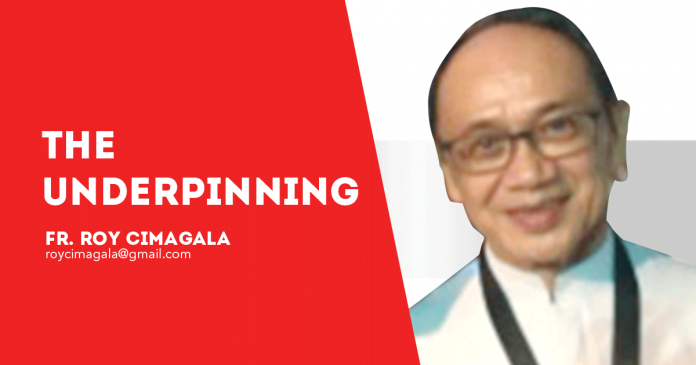
THAT’S right! Charity is for everyone. It has a universal coverage. It’s not only for those who are right in something. It’s also for those who are wrong. It’s not only for the winners. It’s also for the losers. Not only for friends, but also for enemies!
But the universal inclusivity of charity does not do away with the exclusivity of truth. It does not do away with the distinction between good and evil, between right and wrong, between truth and falsehood. In fact, it sharpens that distinction. And yet, it still works in all that distinction.
Yes, charity is all-inclusive, though it is expressed, of course, in different ways. As they say, we have to have different strokes for different folks. And that’s simply because at the end of the day, whether we like it or not, we are all creatures and children of God, brothers and sisters to each other. We have been created by our Creator out of love and for love.
We have to realize that our life here on earth can be described as a journey toward our ultimate home, which is to be with God our Father and Creator in heaven. It will be charity that would keep us going and that would enable us to leap to the eternal supernatural life with God.
While here on earth, we have to realize that we form one body and that we are actually on the same boat. Despite our differences and conflicts, we have a common origin and a common end. We are bound to care for one another. We are meant to love one another.
Charity is what binds us together despite our unavoidable differences and conflicts. Yes, we form one body, but we are different parts of that body. We play different roles and carry out different functions.
Thus, we have to learn to serve in our different but interrelated ways what is truly good for the whole body. Charity demands that we learn how to play our part properly, how to connect with the other parts properly. It requires us to know how to deal with all kinds of people in all situations and conditions, in good times and bad times.
All these considerations should make us realize that we have to learn how to develop and live charity. Given the way we are, that is, that we are not merely material beings that can just be mathematically arranged perfectly, but rather spiritual beings also that need to do things knowingly and willingly, we should realize that charity is not something that comes to us like an instinct. It has to be learned. It has to be developed.
We have to know where it comes from and how it is to be developed and lived. We have to find the proper pattern for it and the law that governs it. Most importantly, we have to know how it can be put from potency to act, from theory to practice, from knowledge to life, from living it from time to time to living it all the time.
For all this, we have been given the adequate means. We have the teachings and example of Christ, made alive and communicated to us through the Church. We have the sacraments. And most importantly, we have Christ himself who gives himself completely to us. Christ is the very personification of charity who makes himself available to us./PN

